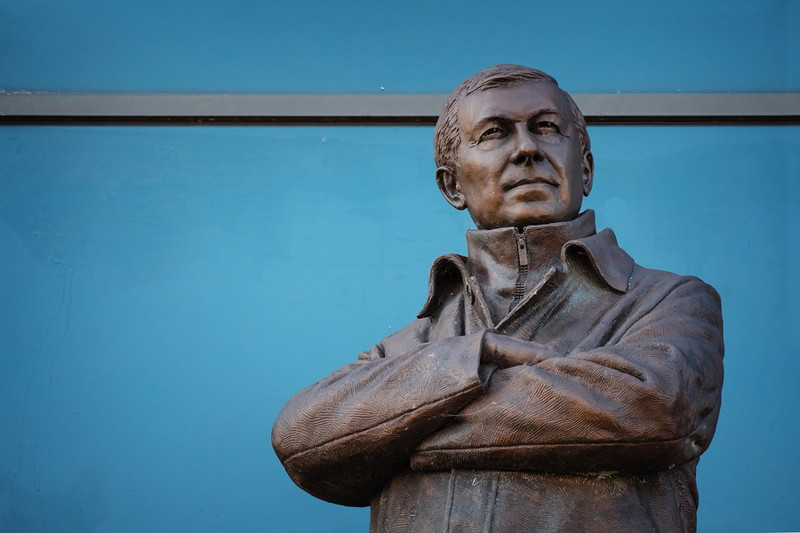
Since the very formation of Newton Heath in 1878, (only to be renamed Manchester United in 1902)
this historic football club has had 29 different managers.
This includes four men who handled managerial duties but under the role of a ‘secretary,’ which was voted in by a committee.
In the space of just a decade, from 2014 to 2024, United have had eight different managers, which represents 27.5% of the head coaches this club has ever had…
Everyone knows Sir Alex Ferguson or Sir Matt Busby, but do you know about Ernest Mangall, the first man to bring silverware to this now world-renowned football club?
If not, this is the guide for you, as we will be deep-diving into every manager United have ever had.
| Manager | Date Appointed | Date Left | Nationality | Games Won | Games Drawn | Games Lost | Win % |
|---|---|---|---|---|---|---|---|
| Alfred Hubert Albut | 1892 (unknown date) | 1900
(unknown date) |
English | 127 | 48 | 110 | 44.56 |
| James West | 1900
(unknown date) |
1903 (unknown date) | English | 48 | 21 | 49 | 40.68 |
| Ernest Mangall | 10/10/1903 | 09/09/1912 | English | 200 | 76 | 94 | 54.05 |
| T J Wallworth | 09/09/1912 | 20/10/1912 | English | 3 | 2 | 2 | 42.86 |
| John James Bentley | 28/10/1912 | 28/12/1914 | English | 36 | 19 | 36 | 39.56 |
| Jack Robson | 28/12/1914 | 31/10/1921 | English | 38 | 36 | 47 | 31.40 |
| John Albert Chapman | 31/10/1921 | 08/10/1926 | Scottish | 86 | 58 | 76 | 39.09 |
| Clarence Hilditch | 08/10/1926 | 13/04/1927 | English | 9 | 8 | 14 | 29.03 |
| Herbet Bamlett | 13/04/1927 | 09/11/1931 | English | 61 | 48 | 91 | 30.50 |
| Walter Crickmer | 09/11/1931 (first spell)
09/11/1937 (second spell) |
13/07/1932 (first spell)
15/02/1945 (second spell) |
English | 44 | 28 | 33 | 41.90 |
| Scott Duncan | 13/07/1932 | 07/11/1937 | Scottish | 92 | 53 | 90 | 39.15 |
| Sir Matt Busby | 01/10/1945 (first spell)
29/12/1970 (second spell) |
04/06/1969 (first spell)
08/06/1971 (second spell) |
Scottish | 576 | 265 | 299 | 50.53 |
| Jimmy Murphy | 02/1958 (Took over while Busby was recovering) | 06/1958 | Welsh | 5 | 7 | 10 | 22.73 |
| Wilf McGuiness | 04/06/1969 | 29/12/1970 | English | 32 | 33 | 23 | 36.36 |
| Frank O’Farell | 08/06/1971 | 19/12/1972 | Irish | 30 | 24 | 27 | 37.04 |
| Tommy Docherty | 22/12/1972 | 04/07/1977 | Scottish | 107 | 56 | 65 | 46.93 |
| Dave Sexton | 14/07/1977 | 30/04/1981 | English | 81 | 64 | 56 | 40.30 |
| Ron Atkinson | 09/06/1981 | 06/11/1986 | English | 146 | 79 | 67 | 50.00 |
| Sir Alex Ferguson | 06/11/1968 | 19/05/2013 | Scottish | 895 | 338 | 267 | 59.67 |
| David Moyes | 01/07/2013 | 22/04/2014 | Scottish | 27 | 9 | 15 | 52.94 |
| Ryan Giggs | 22/04/2014 | 18/05/2014 | Welsh | 2 | 1 | 1 | 50.00 |
| Louis Van Gaal | 19/05/2014 | 23/05/2016 | Dutch | 54 | 25 | 24 | 52.43 |
| Jose Mourinho | 26/05/2016 | 18/12/2018 | Portuguese | 84 | 32 | 28 | 58.33 |
| Ole Gunnar Solskjaer | 19/12/2018 | 21/11/2021 | Norwegian | 91 | 37 | 40 | 54.17 |
| Michael Carrick | 21/11/2021 | 02/12/2021 | English | 2 | 1 | 0 | 66.67 |
| Ralf Rangnick | 29/11/2021 | 29/05/22 | German | 11 | 10 | 8 | 37.93 |
| Erik ten Hag | 21/04/2022 | Present | Dutch | 66 | 17 | 31 | 57.89 |
Alfred Hubert Albut
Known as a candy salesman, Alfred Hubert Albut became club ‘secretary’ in 1892 and remained until 1900.
He was in charge when United moved from North Road to the Bank Road stadium.
In a period of financial instability for United, Albut kept the club afloat before he was replaced by James West, following an external search to find a new secretary.
Albut managed 285 games for United, winning 127, drawing 48 and losing 110.
This left him with a 44.56% win percentage.
James West
Before becoming United secretary, James West was a manager for Lincoln City from 1897-1900.
After leaving Lincoln, he became United Secretary in the same year.
He lasted just three years, unable to bring United out of the second division.
In his reign, he saw United almost fall into bankruptcy after being served a liquidation order, before captain Harry Stafford was able to get four local businessmen to each invest, in return for power in running the club.
One of those four was John Henry Davies, who became club president and officially changed the name from Newton Heath to Manchester United in 1902.
John Henry Davies became club president #OnThisDay 120 years ago.
His first action was to rename Newton Heath to Manchester United.
He saved our club from extinction & he instilled an ethos of us playing attractive football.
Happy 120th birthday Manchester United‼️
1/2 pic.twitter.com/pZhYkVLRds
— 𝘾𝙖𝙣𝙩𝙤𝙣𝙖 𝘾𝙤𝙡𝙡𝙖𝙧𝙨 – aka Larry 🇾🇪 (@Cantona_Collars) April 26, 2022
Davies went on to take United completely out of debt, before changing the club’s colours from green and gold, to red, white and black.
He funded the move to Old Trafford in 1910 and oversaw a lot of United’s success in this period.
There is a classic story about his initial investment though…
It’s believed that captain Stafford’s dog had wandered off at a club’s fundraising event in Manchester in 1901.
He was found by Davies, who then wanted the dog and, in a compromise, United found a new big investor and Davies got himself a dog.
There are other interpretations of this story, but however it happened, Davies was the man who saved United.
Davies replaced West with Ernest Mangall in the Autumn of 1903.
West managed 118 games, winning 48, drawing 21 and losing 49.
This left him with a 40.68% win percentage.
Ernest Mangall
112 years after Ernest Mangall left the club, and he’s still the third most successful manager in United’s history.
It took him three seasons to promote the side out of the second division and into the first.
In their incepting season in the first division, Mangall guided them to a mid-table finish before leading United to their first league title in 1907/08.
The following season, United won their first FA Cup as well.
A few years later, Mangall’s side won the league again in 1910/11.
However, Mangall would leave in 1912 to join rivals Manchester City.
His final game managing United came in a 1-0 derby loss to City themselves.
United wouldn’t win a league title again for 40 years, their longest-ever run.
Mangall managed 370 games, winning 200, drawing 76 and losing 94.
This left him with a 54.05% win percentage.
T.J.Wallworth
Serving as an ‘interim’, T.J.Wallworth managed United in the period after Mangall left, before they found their replacement.
He was only there for seven games before John Bentley was hired in October of 1912.
Of his seven matches, he won three, drew two and lost two.
This left him with a 42.86% win percentage.
John James Bentley
Brought in as the official replacement for Mangall, Bentley had a high act to follow.
The Englishman however, was not able to replicate the previous success.
Before joining United, Bentley played for and then became the secretary of Bolton Wanderers.
In 1887, he became a founding member of the ‘Football League,’ eventually becoming president.
He then went on to be a lifetime member of the ‘Football League management committee.’
He only lasted two years at United, after taking them from a title-chasing team to scrapping relegation.
Subsequently, in 1914 he was replaced by Jack Robson.
After United, Bentley became the vice-president of the Football Association (FA).
In his time at United though, he managed 91 games, winning 36, drawing 19 and losing 36.
This left him with a 39.56% win percentage.
Jack Robson
Known as the very first official manager of United.
With the previous coach’s role described as a secretary, Robson changed this.
Before joining United, Robson had been a secretary for Middlesbrough, Crystal Palace and Brighton and Hove Albion.
He entered Manchester at a turbulent time after it emerged that United and Liverpool were involved in a betting scandal, to fix a league game, to prevent United from relegation.
United would win the game 2-0 and people from both sides would benefit.
Robson however was not aware and was not happy with the fixing.
He managed for seven years at United, before stepping down due to illness.
In that time, Robson managed 121 games, winning 38, drawing 36 and losing 47.
This left him with a 31.40% win percentage.
John Albert Chapman
Chapman’s run as United manager was an unusual one, particularly with the way it ended.
He initially joined United in 1921, having managed Scottish side Airdrieonians before this.
In his first season, United finished rock bottom of Division One and was subsequently relegated.
It took him three years to get United back up and promoted again.
Chapman guided United to a ninth-place finish in his first season back in Division One and an FA Cup semi-final.
However, ex-manager Mangall, now at Manchester City, would come back to haunt ‘The Red Devils’ by beating them 3-0 in the semis.
Chapman’s time at United would be cut short on October 7th 1926, when United received this message from the FA.
It said: “For improper conduct in his position as Secretary-Manager of your Club Mr J. A. Chapman is suspended from taking any part in football or football management during the present season”.
No explanation was ever given but United cut all ties with him immediately.
Clarence Hilditch, a player at the time, became player-manager.
Before his abrupt exit, Chapman had managed 220 games, winning 86, drawing 58 and losing 76.
This left him with a 39.09% win percentage.
Clarence Hilditch
The first person to be a player-manager at Manchester United.
This was then only repeated by Ryan Giggs 88 years later.
He did this for the rest of the season before being replaced by Herbert Bamlett.
Born 2nd June 1894, Clarence Hilditch. Known as ‘Lal’ or ‘Clarrie’, he signed from Altrincham in 1915 and played until his retirement in 1932, then joined the back room staff. Had a stint as player manager when John Chapman was suspended in 1926. Played 332 games scoring 7 goals. pic.twitter.com/VjFYrIXg6p
— Paul English (@paulenglish1961) June 2, 2021
Before going back to just being a player, he managed 31 games for United, winning nine, drawing eight and losing 14.
This left him with a 29.03% win percentage.
Herbert Bamlett
Bamlett was formally a referee before getting into management.
He was the referee in 1909 when United played against Burnley.
Burnley were winning 1-0 and Bamlett called the game off with 18 minutes left due to snow.
United won the rearranged game and then went on to win the FA Cup for the first time.
#OnThisDay 1927, Herbert Bamlett #MUFC manager managed his 1st match with the club v Derby. 2-2
The funny part is, he was a referee years before and refereed a match vs Burnley in the year they had won the cup in 1909. Also, refereed the FA cup final in 1914 Liverpool vs Burnley pic.twitter.com/IgAkUy11sz— Itay Glatter – MUFC1878.com (@itayglatter) April 15, 2024
He managed Oldham Athletic, Wigan Borough and Middlesbrough before becoming United manager.
Bamlett was at the club for four years, before he was relieved of duties after leaving United on the brink of relegation.
This was further worsened by the death of owner Davies, leaving United struggling for cash.
Bamlett left United having managed 200 games, winning 61, drawing 48 and losing 91.
This left him with a 30.50% win percentage.
Walter Crickmer
Known as ‘Mr Manchester United’, Crickmer was a huge reason the club is what it is today.
Crickmer joined United as a teenager in 1919 to be a clerk but soon became secretary.
After Bamlett’s departure, Crickmer stepped in and with the assistance of his chief scout Louis Rocca, they were able to steer United away from relegation into a 12th-place finish.
Crickmer is also attributed with persuading local businessman James W Gibson to invest in the club.
Such investment was pivotal to the club’s survival during ‘The Great Depression’ and the German bombing raids of 1941.
Crickmer then took a backseat to let new manager Scott Duncan take charge.
However, his influence didn’t end there.
Crickmer and Duncan were the founders of United’s fabled youth policy, which then saw the creation of the Busby Babes and Fergie’s Fledglings.
He remained at the club in operational form, until the Munich Air Disaster where he lost his life.
Crickmer had two stints as manager of the club.
His first tenure was from the 9th of November 1931 to the 13th of July 1932.
His second was from the 9th of November 1937 to the 15th of February 1945.
He managed 105 games over both spells winning 44, drawing 28 and losing 33.
This left him with a 41.90% win percentage.
Scott Duncan
Before becoming United manager, Scott Duncan had managed Hamilton Academicals and Cowdenbeath.
He was a former English Football League-winning player for Newcastle.
He joined United in 1932, almost getting the club relegated to Division Three in his first season, just surviving.
In the 1935/36 season, Duncan got the team going and led United to promotion back into Division One.
However, United were relegated the following season and Duncan left for Ipswich Town.
He managed 235 games winning 92, drawing 53 and losing 90.
This left him with a 39.15% win percentage.
Sir Matt Busby

Crickmer had his second stint just after Duncan’s departure but Sir Matt Busby took over at the end of WW2.
This is the man who revolutionised Manchester United.
Busby is renowned for his use of youth, creating the ‘Busby Babes’.
Names like Sir Bobby Charlton, Duncan Edwards and David Pegg were all part of this.
Busby could have left for Real Madrid, but simply said: “Manchester is my heaven.”
He led United to three First Division titles and an FA Cup before the tragedy of the Munich Air Disaster.
Busby survived the crash and began managing United again.
#OnThisDay 23rd April 1958:
Matt Busby returned to Old Trafford for the first time after the Munich Air Disaster 🌹🐝pic.twitter.com/GNlkw00sRr
— 𝘾𝙖𝙣𝙩𝙤𝙣𝙖 𝘾𝙤𝙡𝙡𝙖𝙧𝙨 – aka Larry 🇾🇪 (@Cantona_Collars) April 23, 2024
He felt immense guilt having gone against the FA’s wishes to compete in Europe, but his wife convinced him to return.
She said: “I am sure those who have gone would have wanted you to carry on.”
He managed to rebuild the side to win an FA Cup just half a decade on from the tragedy.
But his most famous achievement came after Busby led United to two more league titles and then a European Cup triumph in 1968, just 10 years on from the disaster.
Busby had rebuilt a heartbroken and destroyed club into European Champions in just a decade.
He retired the season after.
Such an achievement earned him a knighthood and a place on United’s board of directors before later becoming club president.
He would end up managing United again, as an interim in 1970 until the end of the season, following Wilf McGuiness’ sacking.
In his 24 years at the club, he managed 1140 games at United, winning 576, drawing 265 and losing 299.
This left him with a 50.53% win percentage.
Jimmy Murphy
He was Busby’s assistant who took over duties while he recovered in hospital.
The Young Player of the Year award seen today is named after him.
66 years ago today, Jimmy Murphy keeps the flag flying and leads United out for the FA Cup Final, less than 3 months after the crash (1958) #MUFC
pic.twitter.com/SMRlosU2VU— 🇾🇪 (@ManUtdHeritage) May 3, 2024
He managed 22 games, winning five, drawing seven and losing 10.
This left him with a 22.73% win percentage.
Wilf McGuiness
Coming after the legendary Busby was some ask.
This wasn’t something he could live up to.
He played for United from 1954-59 but was injured in 1958, so wasn’t involved in the Munich Air Disaster.
Unfortunately, like many, injuries set him back.
After retiring he became involved at United through coaching.
He initially became reserve team manager, before being promoted to first team manager following Busby’s departure.
However, his tenure wasn’t very successful.
He managed 88 games in his 18 months in the job, winning 32, drawing 33 and losing 23.
This left him with a 36.36% win percentage.
Frank O’Farrell
He took over as United manager in 1971 having managed Weymouth, Torquay United and Leicester City.
His time at United started well but it took a quick turn.
O’Farrell finished eighth in his first season but in his second he was sacked after a 5-0 defeat to Crystal Palace, leaving the club third from bottom.
He managed 81 games winning 30, drawing 24 and losing 27.
This left him with a 37.04% win percentage.
Tommy Docherty
He joined United in 1972 and was there for five years until 1977.
In his first full season, Docherty got United relegated, but his attacking style of football was popular at the club.
He quickly got United back into the First Division.
In 1976, he led United to an FA Cup final, which they lost to second-division Southampton.
But the following year, United were there again, this time beating the favourites Liverpool.
Dave Sexton managed Chelsea and Manchester United.
At both clubs he replaced Tommy Docherty.
Chelsea 1967-1974
Manchester United 1977-1981#MUFC #CFC pic.twitter.com/oLBTCbBevV— MANCHESTER UNITED FANS (@Unitedfans2023) April 2, 2024
However, Docherty fell out with key players, which worsened the atmosphere around the club.
Ultimately, he was the master of his own demise, after it was publicly released that he was having an affair with the club’s physio’s wife.
He was subsequently sacked.
He managed 228 games, winning 107, drawing 56 and losing 65.
This left him with a 46.93% win percentage.
Dave Sexton

The Englishman joined United in 1977, lasting till 1981.
He was an awkward fit at the club, opting for a more reserved approach, which clashed with the size of United and the media attention it got.
The press had called him ‘Whispering Dave’.
He was heavily criticised for the £1.25m signing of Gary Birtles, who failed to score in 11 months.
Sexton did however lead United to an FA Cup final in 1979, but they lost to Arsenal.
The following year they finished runners-up to Liverpool in the First Division.
He was subsequently sacked in 1981.
He managed 201 games, winning 81, drawing 64 and losing 56.
This left him with a 40.30% win percentage.
Ron Atkinson

The man before Sir Alex Ferguson.
Atkinson had managed Kettering Town, Cambridge United and West Bromwich Albion before joining United.
One of his big signings was future United legend Bryan Robson, from West Brom.
Hailing from County Durham in the North East, Robson made his name at West Bromwich Albion, under Ron Atkinson, before following him to Old Trafford in 1981 for a then British record fee of £1.5 million 🤝 pic.twitter.com/8PBnWsNhpN
— Manchester United (@ManUtd) January 11, 2024
He was also the man who brought 17-year-old Norman Whiteside into the United first-team picture as well as Mark Hughes.
In his first season, Atkinson led United to third in the league.
In the following season, he led United to FA Cup glory.
In the 1984-85 season, United won the FA Cup again.
However, despite coming close, Atkinson’s failure to win the First Division ultimately led to his sacking.
He was the most successful United manager since Busby, winning two FA Cups and five successive top-four finishes, but this wasn’t enough.
In the 1986-87 season after bad form, Atkinson was sacked.
He managed 292 games, winning 146, drawing 79 and losing 67.
This left him with a 50.00% win percentage.
Sir Alex Ferguson

Where do we begin?
13 Premier League titles.
Two European Cups.
Five FA Cups.
And this is just some of the trophies the Scotsman won.
The creator of the Class of 92, breeding youth to be successful.
Arguably the greatest manager of all time.
33 years ago, Sir Alexander Chapman Ferguson was appointed manager of Manchester United.
He went on to win 38 trophies, including a record 13 Premier League titles.
The greatest to ever do it. pic.twitter.com/x8DlPEH1TL
— utdreport (@utdreport) November 6, 2019
He was one of a kind.
Ferguson’s man-management skills were next to none.
He left Manchester United in 2013 following his 13th league title victory.
He managed 1500 games, winning 895, drawing 338 and losing 267.
This left him with a 59.67% win percentage.
David Moyes

The impossible job.
Following the greatest football manager ever, his demise was inevitable.
Lasting less than a year, Moyes’ tenure was one to forget.
United finished seventh in the league, their second-worst Premier League finish ever.
Moyes managed 51 games, winning 27, drawing nine and losing 15.
This left him with a 52.94% win percentage.
Ryan Giggs

Giggs became a player-manager upon the sacking of Moyes, with just four games of the season left.
He won two of the games, drew one and lost the other.
This left him with a 50% win percentage.
Louis van Gaal

After the failures of Moyes, Van Gaal was deemed the right man to bring United back.
Unfortunately, this wasn’t the case.
Imposing a pragmatic and slow style of football, Van Gaal needed to be very successful to keep fans on his side.
He secured Champions League football in his first season finishing fourth in the Premier League, but failure to do so in his second was the cause of his sacking.
His removal came just a day after he led United to FA Cup glory in a 2-1 victory over Crystal Palace.
He managed 103 games, winning 54, drawing 25 and losing 24.
This left him with a 52.43% win percentage.
Jose Mourinho
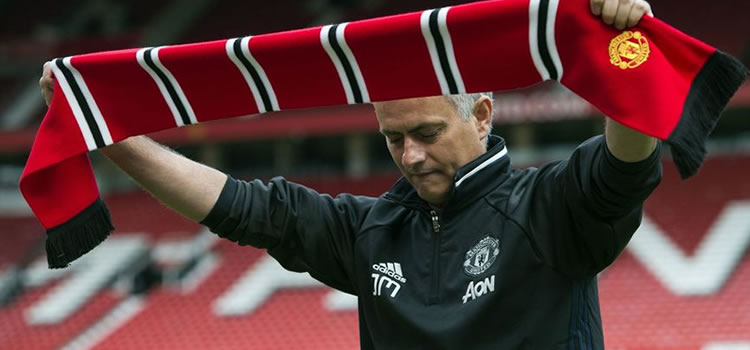
Labelled ‘The Special One’, hopes were incredibly high for Mourinho’s arrival.
He’d won wherever he’d gone, be it Champions League glory with Porto, or leading the treble-winning Inter Milan side.
Like Van Gaal, his slower football didn’t suit the club, but the promise of trophies kept fans excited.
His first season saw United win the Community Shield, League Cup and Europa League.
This was a fantastic start.
But the next two years wouldn’t be so successful.
He failed to win silverware again, before being sacked in December 2018.
He managed 144 games, winning 84, drawing 32 and losing 28.
This left him with a 58.33% win percentage.
Ole Gunnar Solskjaer
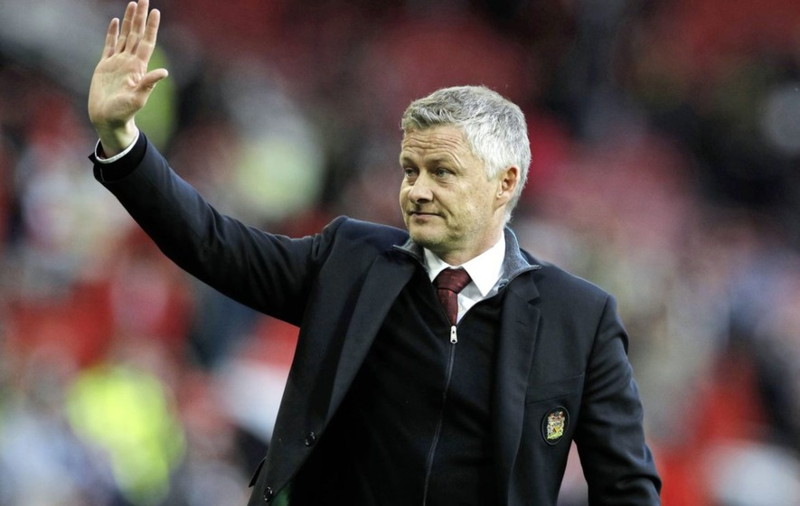
Brought in as an interim after Mourinho’s sacking, Solskjaer immediately blew all expectations out of the water. He won 14 of his first 19 matches, before being given a three-year contract.
However, Solskjaer never really got United playing as well as they did in his interim period and it all went downhill from there.
Knockout defeats define Solskjaer’s tenure as United manager, after losing four semi-finals and winning just one in the Europa League.
But a penalty shootout defeat to Villarreal was another nail in the coffin.
He failed to secure any silverware in his three years at the club.
He managed 168 games, winning 91, drawing 37 and losing 40.
This left him with a 54.17% win percentage.
Michael Carrick
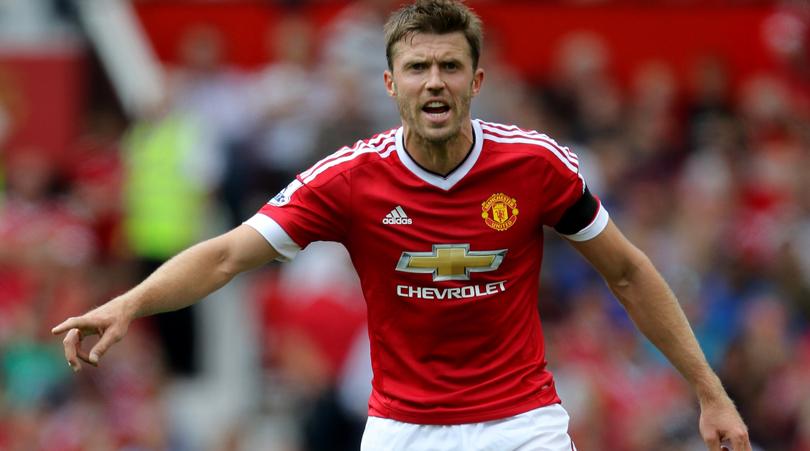
The English midfielder was Solskjaer’s first team coach, before taking on the caretaker role for three games, following the Norwegian coach’s sacking.
He won two and drew one.
This left him with a 66.67% win percentage.
Ralf Rangnick
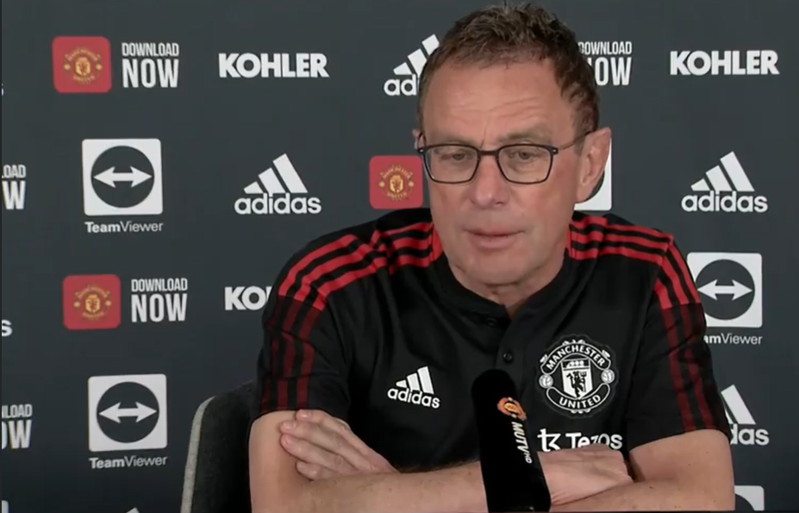
The German coach was brought in as a caretaker manager following the sacking of Solskjaer and Carrick also leaving.
He is known as the ‘Godfather’ of the ‘gegenpress’.
Thread:
Following Ralf Rangnick’s appointment, I take a deep dive into him and the FPL implications he could cause.
This includes an in-depth tactical analysis, the likely system he will implement, players past and present, alongside what it means for FPL.#RalfRangnick #FPL pic.twitter.com/vHvPDDnov2
— FantasyFootball_JianBatra (@FPL_JianBatra) November 26, 2021
However, he wasn’t able to implement his style at the club.
Results were poor, the mood in the dressing room declined and Rangnick’s publicly outspoken approach, tarnished relations between him and the board.
Ralf Rangnick spoke the truth. Man Utd needed open heart surgery.
They ignored him and sacked him. And now they’ve fallen into the same pattern as before.
— Scott Saunders (@__scottsaunders) September 22, 2023
He managed 29 games, winning 11, drawing 10 and losing eight.
This left him with a 37.93% win percentage.
Erik ten Hag
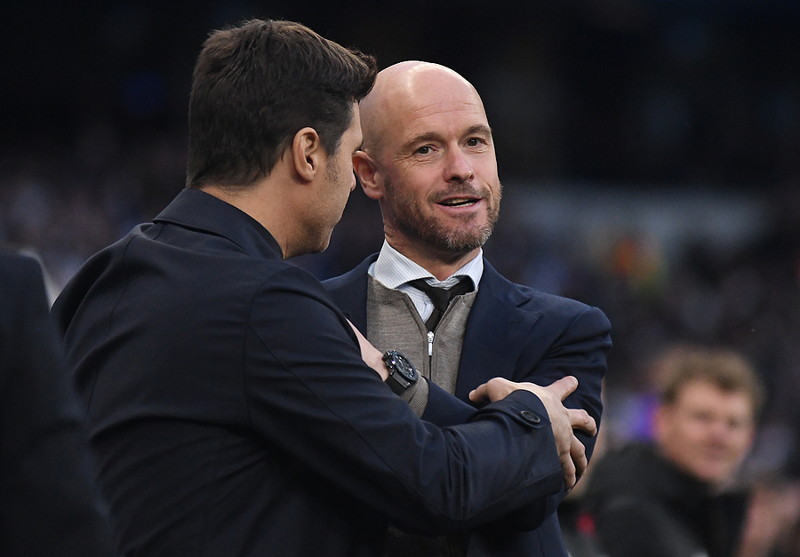
The Dutch coach arrived at Old Trafford with a reputation for playing great football at Ajax.
The hope was he’d do the same at the ‘Theatre of Dreams’.
His first season showed great promise of this, winning the League Cup and finishing third in the League.
However, his second season went drastically downhill after an early Champions League group-stage exit and an eighth-place finish in the Premier League.
This was United’s worst-ever finish in the Premier League.
But a tremendous 2-1 victory over Manchester City in the FA Cup final has helped keep Ten Hag his job.
